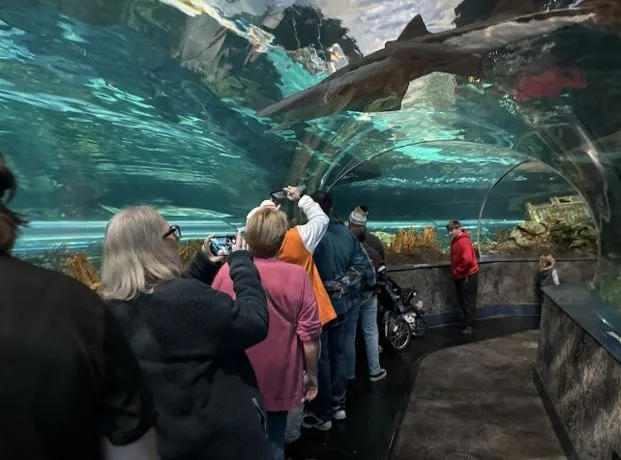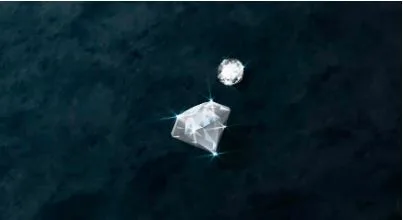Why Kids Remember the Little Things on Trips More Than the Big Attractions
Parents often put hours into planning family vacations. They book tickets for major attractions, research must-see landmarks, and create detailed schedules to keep everyone entertained. These activities are often exciting and worth the effort, but many parents are surprised at what their children remember most after the trip. Instead of only talking about the grand views or the famous sites, kids often bring up the small details: feeding ducks by a pond, laughing over a board game in the cabin, or splashing in the pool before bedtime.
This happens often in places like Gatlinburg, where families have endless options. Theme parks, scenic drives, and live shows all create lasting memories, yet many children come home just as excited about roasting marshmallows, spotting a deer on a trail, or staying up late for a family movie night.
Families don’t need to skip the big sights, but slowing down and making room for smaller moments ensures trips feel meaningful and memorable for children.
Kids Value Play Opportunities Anywhere
For most children, play is at the center of their happiness. It doesn’t matter if they are in a backyard or a cabin in the mountains. If they find a way to play, they will create memories. Parents may think a major theme park is the highlight of a trip, but for kids, something as simple as building a fort with blankets or swimming in a pool often ranks higher.
Play gives children a sense of freedom and control, which they don’t always get in busy attractions where the schedule is set for them. A private pool at the cabin can provide that freedom in a relaxed setting, and many families choose Gatlinburg cabins with indoor pool features because they keep kids entertained no matter the weather. Play transforms downtime into the most exciting part of a vacation.
Families looking for these kinds of experiences can find them with Luxury Cabin Rentals, which offers Smoky Mountain cabins designed for comfort and fun. Guests can choose from cabins with indoor pools for year-round play or enjoy outdoor pool access in the warmer months. These stays make it easy to balance relaxation for parents with endless play opportunities for kids.
Kids Notice Details Adults Miss
Children process the world differently than adults . Parents may walk past a row of trees without giving them much thought, but kids notice the shape of the leaves or the sound of a bird. What adults see as ordinary often feels fresh and fascinating to them.
This is because kids are constantly learning. Every small discovery feels new, and those new experiences leave a strong impression. A stop to skip rocks at a creek may stick with them more than a scheduled tour. By paying attention to the details, children create lasting memories from the simplest parts of the trip.
Small Moments Feel More Personal
The moments kids treasure most usually involve real connection. A big attraction might be exciting, but it often feels less personal. Waiting in long lines or being part of a crowd can make it hard to focus on family time.
In contrast, small experiences often happen in closer settings. Playing a card game at night or helping make pancakes in the morning creates a direct bond. These moments matter because children value attention and togetherness. The memory is tied not just to what they did, but to who they were with and how they felt in that moment.
Quality Time Matters More Than Big Plans
Children don’t measure vacations by how many places they saw. What stays with them is how much time they spent enjoying their parents’ company . A trip can feel successful to adults when they check off every landmark, but kids define success differently.
They remember the trip as fun when they had attention, laughter, and care. A morning spent playing in the pool or an evening telling stories by the fire can feel more special than rushing through a packed itinerary. When parents focus on quality time instead of constant activity, kids come home with memories that last longer.
Children Measure Fun Differently Than Adults
Parents usually evaluate trips by the number of places visited or attractions covered. They want to feel the trip was worth the effort and money. Children, however, measure fun by very different standards. For them, fun is less about how many places they went and more about how they felt in the moment.
Kids remember laughing with their siblings, having a treat they don’t usually get, or enjoying an unexpected moment of freedom. These experiences feel like fun because they connect directly with their emotions. When parents understand this difference, they can plan vacations that match their children’s perspective rather than only their own expectations.
Slowing Down Helps Memories Stick
Many families pack their schedules so tightly that there is little time for rest. Kids end up moving from one activity to the next without pause. This pace can blur experiences together, making it hard to remember individual moments.
When parents slow down, kids have the chance to process and enjoy what they’re doing. A slower trip allows children to connect emotionally with the experience rather than just rushing through it. Families that build in downtime—whether that’s an afternoon swim, a relaxed evening walk, or simply time to sit together—create more space for meaningful memories to take hold.
Children remember the little things on trips because those moments are personal, engaging, and filled with connection. They don’t need grand attractions to feel joy. What they value most are the times when their parents slow down, pay attention, and join in their fun.
For families visiting the Smoky Mountains or any other destination, the lesson is clear: balance the schedule with simple experiences. Allow time for play, embrace everyday joys in new settings, and create small traditions that children will carry into the future.
Vacations don’t have to be packed with attractions to be unforgettable. The laughter during a card game, the calm of a family walk, or the fun of swimming together can be the memories kids hold on to the longest. Parents who recognize this can make every trip feel more meaningful and memorable, not just for their children, but for themselves as well.
https://www.psychologicalscience.org/observer/perception-and-play-how-children-view-the-world
https://pmc.ncbi.nlm.nih.gov/articles/PMC10106685/




